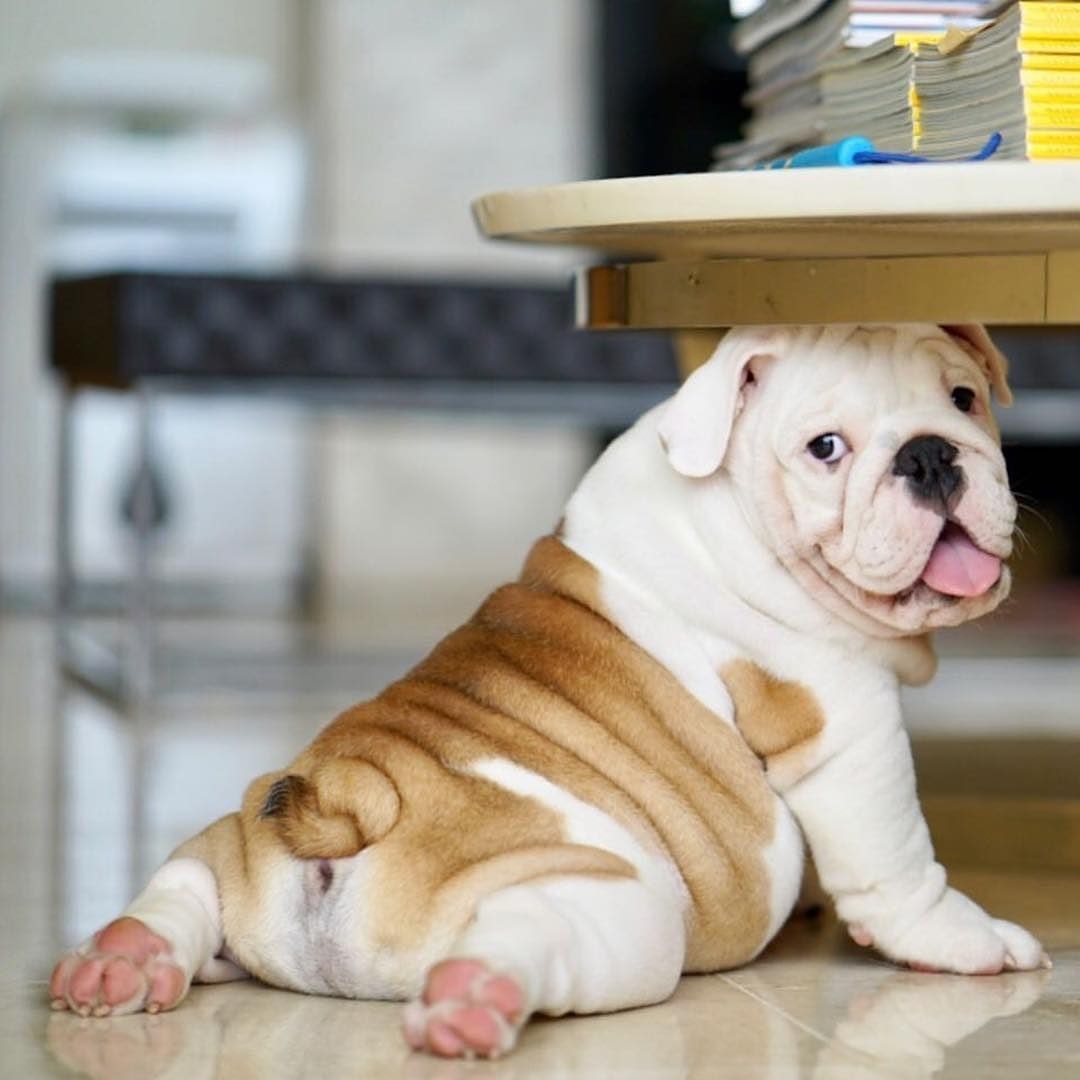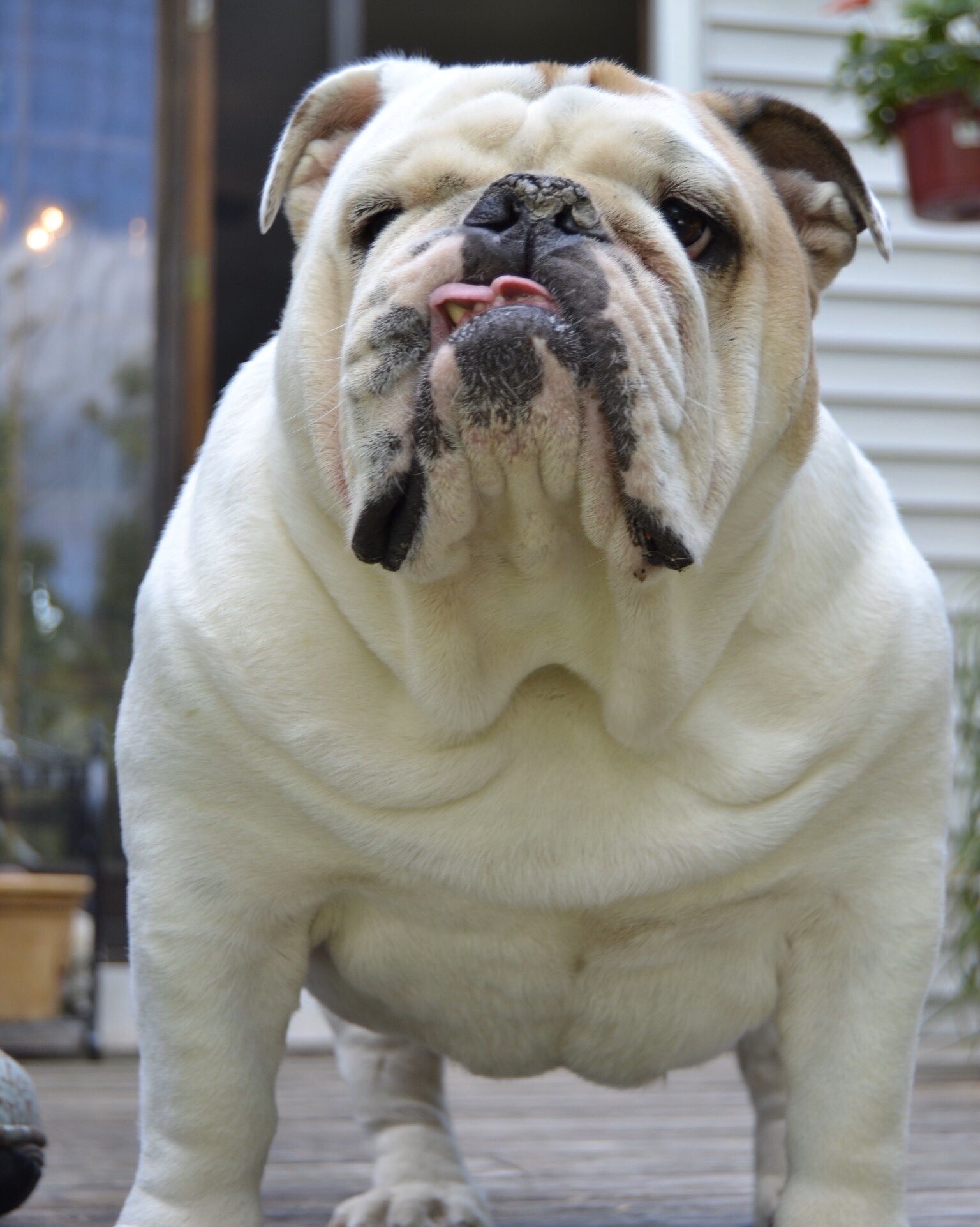So, you’ve got yourself a fat bulldog, huh? Look, we get it. Bulldogs are some of the cutest, most lovable, and downright hilarious dogs out there. But when your bulldog starts looking more like a mini blimp than a dog, it’s time to take action. Fat bulldogs aren’t just adorable; they could be at risk for serious health issues. Let’s dive into why your bulldog’s weight matters, what you can do about it, and how to keep your furry friend happy and healthy.
Let’s face it, bulldogs are naturally chunky. They’ve got that stocky build, those adorable wrinkles, and that chill personality that makes them irresistible. But when the extra pounds start piling on, it’s no longer cute—it’s concerning. Obesity in bulldogs is a real issue, and it can lead to all sorts of health problems. From joint pain to breathing issues, your fat bulldog might be trying to tell you something.
Don’t worry, though. This guide isn’t here to shame you or your doggo. We’re here to help you understand why bulldogs tend to gain weight, what it means for their health, and how you can turn things around. So grab a snack (just not for your bulldog!) and let’s get started.
Read also:Themilaaxo Nude Debunking The Myths And Understanding The Truth
Why Do Bulldogs Get Fat?
Alright, let’s talk turkey. Bulldogs are prone to weight gain for a variety of reasons, and it’s not always because they’re eating too much. Here’s the deal:
- Genetics: Bulldogs were bred to be stocky and strong, so they naturally carry more weight than other breeds.
- Lack of Exercise: Let’s be real, bulldogs aren’t exactly the most active dogs out there. They’re more likely to nap than run a marathon.
- Overfeeding: Who can resist those big puppy eyes? But feeding your bulldog too much or giving them too many treats can lead to weight gain.
- Health Issues: Sometimes, weight gain is a symptom of an underlying health problem, like hypothyroidism or Cushing’s disease.
So, while it’s easy to blame your bulldog’s weight on laziness, there’s usually more to the story. Understanding the root cause is the first step toward helping your pup shed those extra pounds.
Health Risks of a Fat Bulldog
Now, let’s get serious for a moment. Being overweight isn’t just about looks; it can have serious consequences for your bulldog’s health. Here are some of the risks:
- Joint Problems: Bulldogs already have a tendency toward hip dysplasia and other joint issues. Extra weight only makes these problems worse.
- Respiratory Issues: Bulldogs are brachycephalic, meaning they have short snouts. This can make breathing difficult, and excess weight can make it even harder for them to breathe.
- Heart Disease: Just like humans, overweight dogs are at higher risk for heart problems.
- Diabetes: Obesity is a major risk factor for diabetes in dogs.
It’s not all doom and gloom, though. With a little effort, you can help your bulldog lose weight and avoid these health issues. But first, let’s take a closer look at how to tell if your bulldog is actually overweight.
How to Tell if Your Bulldog is Overweight
Not sure if your bulldog is tipping the scales? Here are a few signs to look out for:
- Visible Ribs: You should be able to feel your bulldog’s ribs without pressing too hard. If you can’t feel them at all, that’s a sign they’re carrying extra weight.
- Waistline: Bulldogs should have a slight waistline when viewed from above. If your dog looks more like a barrel, it’s time to take action.
- Energy Levels: Is your bulldog sluggish or struggling to move around? This could be a sign that they’re carrying too much weight.
Of course, the best way to know for sure is to take your bulldog to the vet. They can weigh your dog and give you a better idea of where they stand.
Read also:Andrew Sullivan Navy Seal The Untold Story Of A True Warrior
Understanding Your Bulldog’s Ideal Weight
Every bulldog is different, so there’s no one-size-fits-all ideal weight. On average, male bulldogs should weigh between 50-55 pounds, while females should weigh between 40-50 pounds. But don’t just go by the numbers—your vet can help you determine what’s right for your specific dog.
How to Help Your Fat Bulldog Lose Weight
Okay, so you’ve realized your bulldog needs to lose a few pounds. What now? Here’s a step-by-step guide to helping your pup slim down:
Step 1: Adjust Their Diet
Food is a big part of the equation when it comes to weight loss. Here’s how to get it right:
- Portion Control: Measure out your dog’s food instead of free-feeding. This helps you keep track of how much they’re eating.
- Quality Over Quantity: Choose a high-quality dog food that’s packed with protein and nutrients, rather than cheap fillers.
- Limit Treats: Treats are fine in moderation, but they can add up quickly. Stick to healthy, low-calorie treats when possible.
Step 2: Increase Exercise
Exercise is key to helping your bulldog lose weight. But remember, bulldogs aren’t built for intense physical activity. Here are some safe ways to get them moving:
- Short Walks: Start with short, easy walks and gradually increase the distance as your dog gets fitter.
- Playtime: Bulldogs love to play, so spend some time tossing a ball or playing tug-of-war.
- Swimming: If your bulldog is comfortable in the water, swimming is a great low-impact exercise for them.
Common Myths About Fat Bulldogs
There are a lot of misconceptions out there about fat bulldogs. Let’s debunk a few of them:
- Myth: Bulldogs are supposed to be fat. Nope! While bulldogs are naturally stocky, being overweight is not healthy or normal.
- Myth: Exercise isn’t important for bulldogs. While bulldogs aren’t built for long-distance running, they still need regular exercise to stay fit and healthy.
- Myth: Bulldogs can’t lose weight. With the right diet and exercise plan, any dog can shed those extra pounds.
When to See a Vet
If you’re concerned about your bulldog’s weight, it’s always a good idea to consult your vet. They can help you:
- Rule out any underlying health issues that might be causing weight gain.
- Create a personalized diet and exercise plan for your dog.
- Monitor your dog’s progress and make adjustments as needed.
Remember, your vet is your bulldog’s best ally when it comes to their health. Don’t hesitate to reach out if you have any concerns.
Feeding Tips for a Fat Bulldog
Here are a few more tips to help you feed your bulldog the right way:
- Stick to a Schedule: Feed your dog at the same times every day to help regulate their metabolism.
- Use Puzzle Feeders: Puzzle feeders can make mealtime more fun and help your dog eat more slowly.
- Avoid Table Scraps: Human food can be high in calories and fat, so it’s best to avoid feeding it to your dog altogether.
Final Thoughts: Loving Your Bulldog the Healthy Way
At the end of the day, your bulldog’s health is the most important thing. While it’s tempting to spoil them with treats and snacks, remember that a healthy dog is a happy dog. By helping your fat bulldog lose weight, you’re giving them the gift of a longer, healthier life.
So, what are you waiting for? Grab your leash, stock up on healthy treats, and get moving with your bulldog. And don’t forget to share this guide with other bulldog owners who might need a little help. Together, we can make sure every bulldog is living their best life!
Table of Contents
- Why Do Bulldogs Get Fat?
- Health Risks of a Fat Bulldog
- How to Tell if Your Bulldog is Overweight
- Understanding Your Bulldog’s Ideal Weight
- How to Help Your Fat Bulldog Lose Weight
- Common Myths About Fat Bulldogs
- When to See a Vet
- Feeding Tips for a Fat Bulldog
- Final Thoughts: Loving Your Bulldog the Healthy Way


